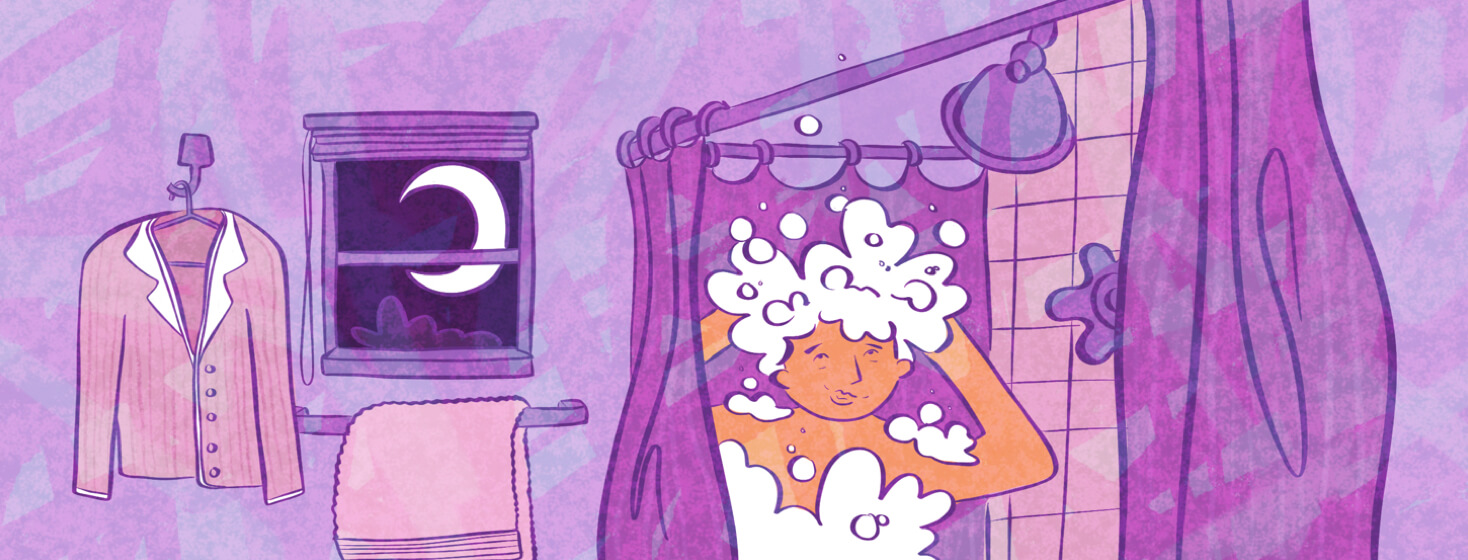Wash, Rinse, and Repeat: Adaptation and Routines
Sometimes life feels like an endless repeat cycle that starts and ends at the same point. I can hear the little voice in my head tell me when I am off the simplest routines, like what time I wake up in the morning, whether I showered, once or twice (or more) a day, and if I put too much sugar in my coffee.
With narcolepsy, it’s been a continuous stream of ensuring I stick as closely to a routine as possible. Otherwise, I am bound to be like the label of a set of shampoo and conditioner bottles in the shower.
Adapting to brain fog
Thankfully, my brain is very detail-oriented, memorizing fine details in documentation that allows me some talent in the review of the written word. This could sometimes be misinterpreted, though, as being anal-retentive, obsessive-compulsive, or overly annoying to many who don’t have the semi-photographic memory that I have – but it only really works for words.
I can be a walking encyclopedia, but honestly, it’s an adaptation to the significant brain fog that can occur with narcolepsy. What my brain is doing literally equates to “wash, rinse, and repeat.”
See, write, remember
How do I know that I have to repeatedly create the images in my mind? Frankly, it’s the fact I can’t do it with everything. I used to fall asleep in my school textbooks and during lectures for college, so you can’t really retain everything seen if your eyes are shut.
My mind, though, looks over certain important papers, articles, and facts – words I can’t even pronounce, but see on paper, which I also write at the same time.
Wash...see.
Rinse...write.
Repeat...remember.
Recall abilities
Given that the frequency in which I fall asleep reading is typically low, I have a good chance of seeing the words enough to recall them straight from memory. Even as a young kid, I could do this and spell a word without even knowing how to pronounce it myself.
This also leads to some other issues, though. I can fall asleep still at unknown times, so I’ll often repeatedly look at pages of books for hours – sometimes the same sentence.
Grow, learn, adapt
The adaptation only works on paper as a useful skill. I can repeatedly perform a task, like washing the same shelf I just washed or whether I remembered taking my medicine. Without a pill organizer and app on my phone to keep track of these things, I would repeatedly take my medicine or not for fear of taking too much.
I wondered once when I read the hair cleansers if anyone really spent time repeatedly washing and rinsing their hair. I only wash once (as long as I remember I did it!), yet it seems like the oddest of instructions for something that I would consider a once-a-day event.
Despite the absurdity of this, though, it’s a phrase I use when in need of figuring out how to keep going. You could also say: grow, learn, and adapt.
Routines keep my life steady
Needless to say, most of the habits I have in life, or all of them, come from the cyclic nature of my routine. Especially when good sleep hygiene is basically the only medication keeping me going, it’s a struggle to keep up with it daily. Though I would love to hang out late with lots of friends or otherwise be carefree with my schedule, my life needs this cycle.
My adaptations and routines are what keep things steady even when life is overall tiresome, wearing, and chaotic.
Adding in the fun stuff with care
This is not to say that I don’t do fun stuff or things without planning. Building my routine around the fun stuff or not so mundane happens, but always with care. I’m bound to fall asleep in my supper after a long strenuous hike. I need to ensure I am well-rested before I spend time with lots of people.
I have to also know when to say no to events or situations based on my tiredness factor. I’m not just a washing machine, but it seems like most days I can be.
Let's aim for consistency
Remember that with a chronic medical condition (or most people generally), consistency can be your ally. We don’t create/break habits by changing behaviors daily. Nor do we find peace or calm in continuously changing and exciting situations.
Finding your routine, cycle, or otherwise habits of health can reduce the exhaustion of narcolepsy and hopefully find relief in such a busy world. Wash, rinse and repeat, but only as necessary.

Join the conversation